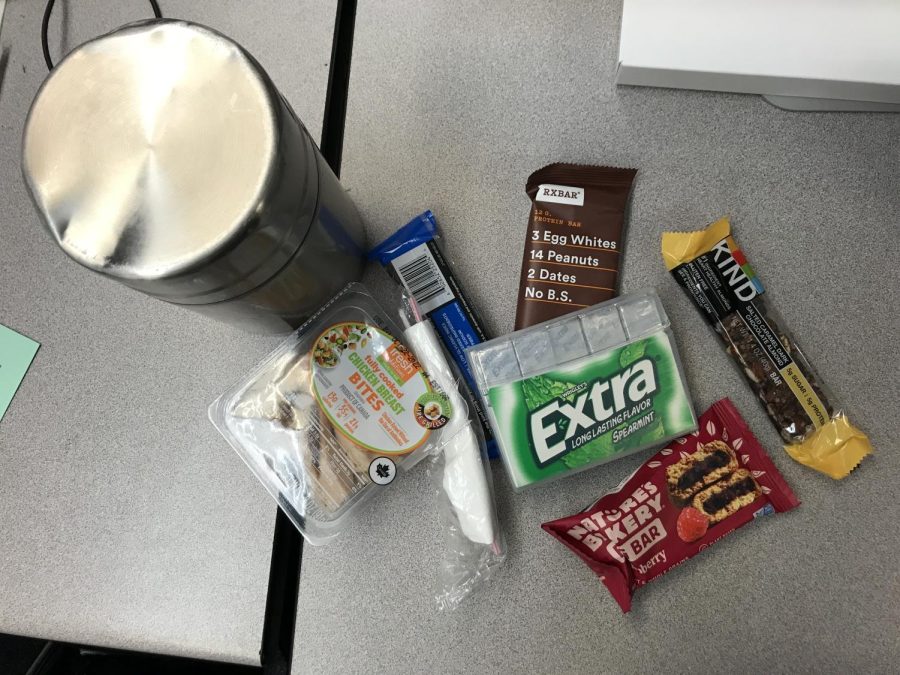The key to a football player’s diet
Eating snacks throughout the day allows football players to meet calorie goals and helps maintain a balanced diet.
October 10, 2022
Diets play an important role in football players’ success at their respective positions on the field. Whether that be a caloric deficit to obtain a lightweight body or a caloric surplus to increase body mass, players must sustain the diet they commit themselves to.
Players try not to skip meals regardless of specific weight loss or weight gain objectives. Instead, players will adjust their calories while eating at least three meals a day with snacks at regular intervals.
“Certain positions and certain body types take in more calories than others. Certain athletes like linemen obviously eat a lot more, so the portion sizes are probably a lot bigger,” said athletic trainer Diana Hasenpflug.
Carbohydrates fuel an athlete’s body and are regarded as one of the most important foods in a player’s diet. 55-60% of their diet should come from carbohydrates.
“Sometimes if they don’t take in enough nutrients, they’re more fatigued and tired. They don’t have the amount of energy in order to participate at that level they’re expected to perform at,” said Hasenpflug.
Protein builds muscle, repairs muscle damage, and consists of around 15% of a player’s diet. However, many players eat larger amounts of protein to compensate for different body types.
“I like fish, whether that’s sushi or grilled salmon with some asparagus, or brussel sprouts with ginger. That’s one of my favorite meals (along) with chicken and rice,” said cornerback Jacob Cazella (‘23).
Whatever foods they decide to eat, it must be consistent in order to maintain that diet throughout the season. The offseason is usually a time for players to bulk up on the major food groups.
“It’s more personal preference. I honestly think the diets they take in just have to be something that works for them individually… They have a tendency to watch what they eat better when they’re in season,” said Hasenpflug.
Drinking water or gatorade replaces body fluids lost from sweating and provides fuel. Players will drink some form of liquid every 15-20 minutes during games and practices.
“I would say that hydration is probably one of the most important factors of a healthy athlete. Drinking a lot of water would avoid cramps and dehydration,” said Cazella.
Meeting each individual’s eating goals is a commitment to which players must dedicate themselves. Keeping track of macronutrients throughout the year is key to reaching those goals.
“(The best way to maintain a diet) is to establish that habit of eating and being able to do it for 30 days. Once you establish that habit in 30 days, usually it sticks with you,” said Hasenpflug.






